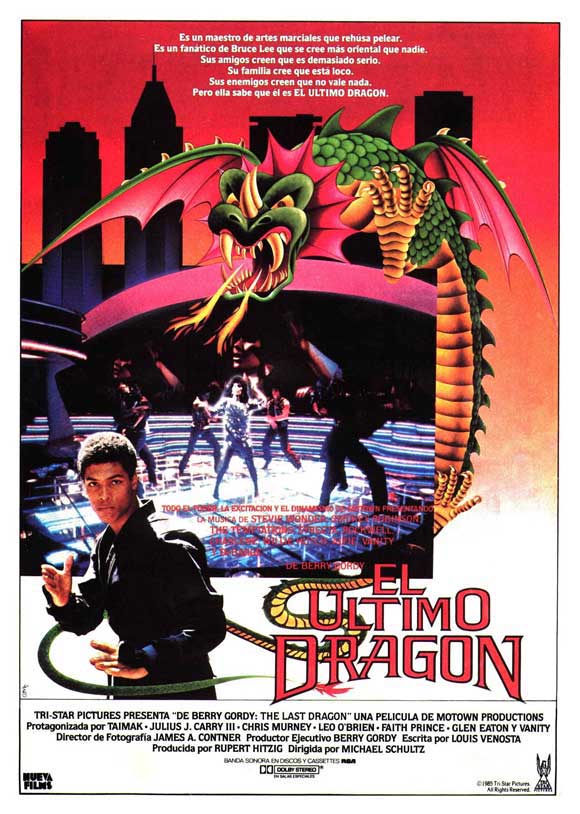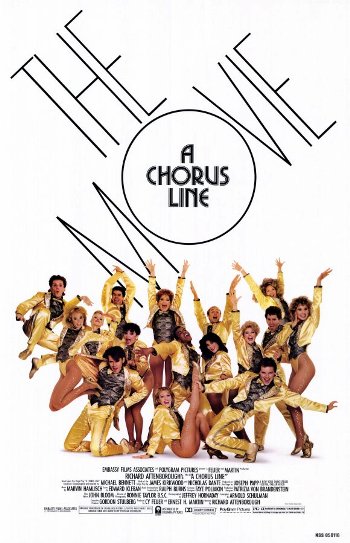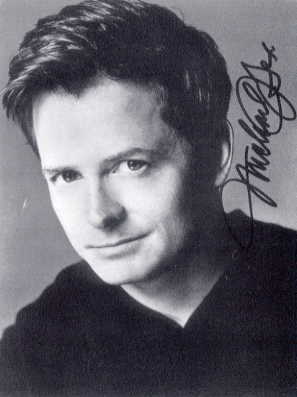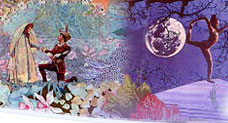This Business of Film
To paraphrase Charles Dickens, it was
the best of jobs and it was the worst of jobs. In the spring of 1986, I
was hired as the bodyguard for actor Michael J. Fox during the making
of the movie, “The Secret of My Success.” I not only got to hang out
with and look out for him every day for three and half months, but I
actually lived in the hotel room next door to him that whole time.
The
secret of my success in getting this once-in-a-lifetime job was not
tapping into the same “past lifetime” gladiator energy that had helped
me become a victorious Giant of The Bus in my Brooklyn youth, (more
about that in my next out-of-the-sequence-of-my-life blog) but instead
came from past movies I had worked on, two of them. I had been working
as a location scout on the previous two feature films produced by Joe
Carraciolo Sr., who also produced “The Secret of My Success.” These
films were “The Last Dragon” and “A Chorus Line.” Slowly but surely, I
found myself being perceived, not as a location scout, but as a force to
be reckoned with.
A location scout's job is to knock on a
strangers door and convince them that they would like to have a hundred
or so highly paid vandals make their home, business, or life miserable
for a few days and a lot of money. The French have a saying that
translates, “Where a film company has shot, the grass does not grow
again,” and I have to admit, the best time to rent your place for a film
shoot is just before you renovate. A location scouts job is to read the
script and find places to film that work for the director, who is the
boss of bosses on a film set, and the shooting crew, who need high
ceilings, low noise, a lot of electricity, spaces to park the trucks and
the actors, and a lot of good food. Do not underestimate the importance
of food. The only time I ever saw a crew walk off a movie was because a
caterer they hated had been hired again by mistake. That mistake, which
happened during the filming of my first TV show, The Hamptons, must
have cost the production company of Gloria Monte, creator of General
Hospital, about $100,000.
“The Last Dragon,” the first feature
film that I worked on, is a marvelous kung-fu musical adventure comedy
produced by Motown Films. It was filmed in some of the rougher
neighborhoods of New York. Location Scouts have the same motto as
commandos, “First in, last out,” and I actually wore that motto on a
real commando pin stuck in one of the many different colored berets I
wore during this time. Location scouts are like the riders of The Pony
Express. Before filming started, I scouted the locations we shot in, and
a whole lot more that we didn't use, and, like those riders of the old
west, I did it all by myself. Unlike them, I did not have any horses die
or shot out from under me and no one was trying to kill me, with the
exception of the escaped felon who threatened me with death for almost
inadvertently taking his picture.

Everyone is nice to you when
they hear that you work in the movies. Little old ladies with a hundred
locks on their door would open every one of them for me. I have an
honest face. However, thinking of their future safety, I would tell them
not to open their doors, but first to call the Mayor's Office of Film
and TV to verify my credentials.
On The Last Dragon, like on
every movie, after taking folders full of pictures of dozens of possible
locations for us to film, I then came back to the ones the director
liked with the department heads of the shooting crew for what was known
as a “tech scout.” It was on one of them that I had the most
embarrassing moment of my whole movie career.
I had accompanied
Lloyd Fonneville, who had written and was going to direct Gotham, a made
for Showtime movie, to a rib joint on 9th Avenue named Smokey's or
something like that. Lloyd, who later co-wrote the highly successful
film, The Mummy, really knew his stuff, especially for a first time
director. He had actually written Gotham right there in the rib joint as
a struggling writer and wanted to put it in the film. We sat down with
the owner and worked out the details. We promised to come back the next
day with two van loads of producers, assistant directors and our film's
department heads to scope the place out and the owner said he would be
there.
The next day, we pulled up to Smokey's and…it was gone!
Everything was gone! The neon sign outside was gone, the plastic fast
food seats had been ripped from the floor, the counter and all of the
kitchen equipment, too. I looked at Lloyd and he looked at me and then
we both looked at the executive producer who was paying for this very
expensive outing and said in tandem, “It was there yesterday!” I later
heard the rumor that the reason for the midnight move involved big money
owed to dangerous people. The producer was my clear and present danger,
but since Lloyd backed me up, I was in the clear. When he laughed,
everyone laughed, and then I exclaimed from my heart, “If this was
happening to anyone but me, I'd be laughing, too!”
We filmed The
Last Dragon in the same areas that I would later scout locations for
The Equalizer, a TV show that was the closest thing to filming a live
movie you could ever see. Though the neighborhoods were too dangerous
for some crews to film in, everyone there was very nice to us. In fact,
filming went smoother for us than for any other film crew working in NYC
at the time.
The director, Michael Shultz, was a “person of
color” and, unlike every movie I had worked on until then, there were
actually black people working on the crew. The problem was very bad and
nothing was being done to stop it, at least by the film industry. I was
almost as embarrassed by this as I had been by the disappearing rib
joint.
At the time, there was a group of people of color going
around the city trying to harass film crews into giving them and people
like them a chance to work. Their desperate tactic was to make it hard
if not impossible for crews to shoot outside. They picketed the indoor
locations, which rattled the actors.
However, when they came to
our set and started doing what they did best, I walked right up to them
in the colored beret, thigh-length brown leather jacket, Pershing belt,
and motorcycle boots ensemble I used at the time to help me get past
some of the tougher citizens in the tough neighborhoods we were shooting
in and pointed out to them that their efforts were not needed on this
movie. They looked around, thanked me, and rode off into the sunset as
happy as The Lone Ranger after cleaning up Dodge City.
I later
found out that Joe Carraciolo, who later produced hits like Big Daddy,
and Charlie's Angels, happened to be with the shooting crew that day,
and was impressed when he saw what he thought was me bravely confronting
a bus load of thorns in his side and throwing them off the set without
so much as a dime of his money changing hands. I also learned that he
even mentioned this to Berry Gordy, the legendary founder of Motown and
executive producer of “The Last Dragon,” who informed Joe that he had
heard and seen with his own eyes that every time the four teams of
martial arts advisers, who had egos as impressive as their spectacular
fighting skills, were just about to kill each other over some perceived
slight, they would stop after I went over and talked to them.
What
they didn't know was that I was not threatening anyone, I was quoting
everyone. When violence seemed imminent, I would quote Confucius, Lao
T'su and his Book of T'ao, Sun Tzu from the “The Art of War,” or
Professor James Mitose, who brought Kenpo Karate to the USA at the
beginning of WWII. What could they do when reminded of the highest
principles of the art they had devoted their lives to? They swallowed
their pride and went back to practicing to work off their anger, like a
true martial artist is supposed to do.
In this lifetime, I had
learned what martial arts I knew from my best friend, Jay Abramson. He
had a black belt in Kenpo Karate and I learned a bit as he regularly
beat me up practicing when he lived with me for a couple of months prior
to joining the Navy as a carrier pilot. I found the spiritual basis for
Karate fascinating and went on to read a lot about it. So what really
stopped the feuding karate masters on the movie set was me reminding
them that a true martial artist avoids fighting as much as possible and
controls their ego, and that anyone who initiates violence has already
lost the real battle and the only one worth winning.
Berry Gordy
was actually pretty tough, himself, but like a true master fighter, he
was aware of his limits. After working with him for several weeks I
finally got up the nerve to ask him why he had hired a white male
personal assistant. He very forthrightly said, “When I step away from
this limousine, I am just another black man in America.” This, coming
from the richest black man in America at the time, really put wealth and
racism in perspective for me more than anything I have ever heard
before or since.
I went straight to one of my many Theatrical
Teamster friends driving trucks for “Dragon” and asked him why there
were no minority Teamsters. His answer? “I'm a minority Teamster. I
don't play cards.” As usual, it took Teamster wisdom to put the whole
situation into perspective. To their credit, there are now a lot more
minority teamsters in the film business.
When he moved on to his
next movie, “A Chorus Line,” Joe Carraciolo Sr., asked me to do
security for the film, since it was being shot almost entirely in the
Mark Hellinger Theater, a gloriously ornate theater in the old style on
50th Street off of Seventh Avenue, and there was no need for a location
scout. Since the whole movie was shot in one place, you would have
thought that there was not much need for a security person or a
Teamster, but you would have been wrong on both counts.
When a
movie is shot in a union Broadway theater, any union truck that brings
equipment to said theater must stay at the theater at full pay until the
equipment is returned to the rental houses. It looked like every light
and cable in the city of New York was going to be used on “A Chorus
Line” for the next five months. The lighting cables were stacked almost
two feet high running up both sides of the balcony, and represented no
less than forty-six truckloads, each truck manned by two teamsters. Joe
was good and had negotiated a deal that reduced the number down to eight
trucks a'idling and sixteen Teamsters a'laying on the payroll that
Christmas.

As it turned out, there was plenty of need for a
security person, too. It wasn't just because of all the stellar guests
coming to visit the legendary actor and Academy Award© winning director,
Sir Richard Attenborough, or Sir Dickie as he allowed me to call him.
He loved my militaristic getups and when he came in each morning he
saluted me, British style, complete with the stomping of the foot and
the scream of “Sir!” Everyone who was anyone in the world of
entertainment who happened to be in NYC came by to pay homage to him.
Each day for five and half months, you never knew who would walk in at
any time. To name only a few of the people I got to meet and literally
greet, we had Michael Jackson, the British Ambassador, Al Pacino, Burt
Reynolds, Gwen Verdon, and Bob Fosse (who came to visit their daughter
Nicole, who was one of the stars of the film).
I thought this
was going to be an easy job that was going to allow me to work on
perfecting my first book/divination system, “Karma Cards,” whose
prototype I had printed onto file cards and played with swarms of
leotard-clad dancer extras as well as with some the principle
dancer/actors of the movie. Amy and I have a level of trust between us
that goes beyond what most people are capable of understanding. She was
never jealous when she found me surrounded by the questioning chorines,
even when she went to remove the bottom piece of paper from my pad to
write one of her “to do” lists and found that one of them had written
“Monte, I love you,” on its gray cardboard backing.
“A Chorus
Line” was shot in the same sequence as the movie, a rare, very
expensive, and time consuming process, and so for the first few weeks we
had about a hundred extras. My first day on the job, I watched them all
file out for lunch and then return, one woman accompanied by her
girlfriend whom I let in. Minutes later, I heard shouts and then the
girlfriend flew out the door, leaving her extra friend with a bloody
nose and me with egg on my face. I got really serious about my job after
that mistake.
I got so good at it that I apparently also fooled
my friends the Teamsters. I was roused from my Karma Cards research
with the dancers by two of them, who realized that they were violating a
sacred trust. They had previously asked, “Teach us that astrology crap.
We're wasting tons of money on these girls and all they want to do is
hang out and do that astrology crap with you.” I took it as a supreme
compliment and the sign that my work on Karma Cards was going to pay off
somehow.
They burst into my “office,” which was the outer
vestibule of the Mark Hellinger Theater, shouting that I had to go out
into the street because two Teamsters brothers were fighting. These were
not just brother Teamsters, they were actual siblings, in their
thirties, and big strong boys, at that.
I showed a bit of my true colors by replying “But you're the Teamsters. Why don't you stop them?”
“Because
they'll kill us, but they like you. You've got to get out there and
stop them before someone gets hurt!” was their typically honest and
direct response.
I ran outside into the street figuring that I
would probably be the one who got hurt. There indeed was my friend Bobby
slamming his brother, my friend Tommy against the door of one of the
eight perennially parked equipment trucks and shouting words that
curdled my blood, “Mom always liked you better!”
Anyone who
knows anything about brothers knows that this is the worst possible time
to intervene in a fight between them, but I tapped Bobby on the
shoulder anyway, figuring that I was probably going to die one way or
another, but that if I was lucky, Tommy would hit Bobby in the back of
the head or grab him from behind when he turned to kill whomever had
tapped him. Luckily for me, I must have taken a thorn or two out of
Bobby's paw at one time or another previously because when he wheeled on
me with his hand cocked next to his ear, ready for the coup de grace,
he paused in the action and actually listened to me when I pleaded for
him to kill his brother somewhere else because it would cost me my job
if he did it there and then.
We walked back to the theater
entrance to the cheers and jeers of our Roman Coliseum crowd, not only
just the Teamsters but, to my chagrin, the bemused face of “A Chorus
Line's” star, Michael Douglas. He had gotten more than he bargained for
when he came outside on a break to see if the ultra-expensive Louma
Crane was still sitting by the door unused at $1,000/day plus the cost
of the operator, a guy named Stewart who was about to add another
classic motorcycle to his collection from the money he was raking in on
this job and sleeping off the previous night of pub crawling in the
lounge upstairs at the Mark Hellinger. Being a movie producer, Michael
could not stand to see this kind of waste.
Michael Douglas is
more than an Academy Award® winning producer and a movie star; he is a
great man who has contributed greatly to the cause of peace with his
time and money and without seeking anything in return. Though I have
never seen it reported anywhere, I learned from someone who was as close
to the situation as you could be that during the filming of “A Chorus
Line,” Michael was paying the travel expenses for the leaders of both
the leftist El Salvadorian guerrillas and the Government's right wing
death squads to go to a neutral country to negotiate their differences
so as to end the horrible bloodshed that had torn their country apart.
The situation there got a lot better in the months thereafter. This is
an example of true greatness and he deserves the best that life and this
difficult, challenging world has to offer.
The end of “A Chorus
Line” taught me first hand the psychosomatic nature of most back pain.
When I was between films, I had been plagued by back pain so severe that
I had not been able to get up out of bed. I had been given a copy of
Dr. John E. Sarno's revolutionary book, “Mind Over Back Pain,” and
learned that in his opinion, back pain was usually a stress related
problem caused by feeling that you were not supported.
I had
thought that this was an interesting theory until the night before the
“Chorus Line” rap party when, without any warning, my back went
completely out and I couldn't walk. I realized that it was too much of a
coincidence that it had done so when I was facing unemployment for the
foreseeable future and so I forced myself to go to the rap party, where I
was to do the security. Although I felt that my back was held together
by a string about to snap, Amy dragged me there and I was glad that she
did. When Sir Dickie got up to make his farewell address to us all, he
singled me out, did his salute, and I got a standing ovation from my
friends and colleagues. My back stopped hurting immediately and has
never gone out again without me knowing what the cause was and getting
it and myself straight in a couple of hours.
Had I known that I
would be going from working with Michael Douglas to living with Michael
J. Fox, my back would not have gone out at all. Joe did not ask me to do
it until Michael called him from his besieged hotel in Cleveland, Ohio,
where he was filming “Light of Day,” a movie written and directed by
Paul Shrader, who wrote the screenplays for “Taxi Driver” and “Raging
Bull.” Michael told Joe that he was going to need a bodyguard in New
York City if his fans in Cleveland were any indication of what was in
store for him. They had made it difficult for him to leave his hotel
room or the movie set and he couldn't go out after work at all. He told
Joe that he needed someone “big enough to do the job and nice enough for
me to live with all the time.” Naturally, Joe told him he had just the
man.
As I hurried to my first day of body guarding, it suddenly
dawned on me that I had yet to see “Family Ties” or “Back to The Future”
and I did not really know what Michael looked like. I walked into the
Minskoff rehearsal rooms on Times Square where the cast of the movie was
reading through the script with director Herbert Ross and by the way
everyone deferred to him, I figured out who my charge was.

He seemed
like a very nice guy and he was. He was also famous in a way that I had
never even imagined.
We left the rehearsal studios on foot and
crossed Times Square during rush hour. As we got to the middle of the
street, a young mother wheeling a baby carriage saw Michael, gasped, and
started fumbling in her purse for something for him to autograph. She
kept right on digging through her purse even though the light had
changed and an army of yellow cabs inched right up to the four of us and
started to honk, causing the baby to cry. Michael, who loves children
and now has three of his own with the love of his life (I can swear to
that!), actress Tracy Pollan, wheeled the carriage onto the sidewalk as
the mother followed getting her pen and paper ready for him. I thought
to myself, “The mother of a newborn baby will leave her child in the
middle of Times Square to get this guy's autograph! What have I gotten
myself into?!!!”
My real epiphany came when Michael, Jimmy
Nugent, Michael's Teamster driver, and I had lunch with Julian Lennon,
the musician/poet and the late and John Lennon's first son, at Trader
Vic's at the Plaza Hotel. He had had a hit song or two at the time, but
was accompanied by a bodyguard for obvious reasons. I finally realized
that I was sitting with someone whose father, one of the most beloved
and respected people on the planet, had been killed, not by an enemy but
by a deranged fan who professed to love him! Once again, I got a little
mad at myself for the cavalier manner in which I had accepted this
possibly very dangerous job and I decided that I would borrow a friend's
bullet proof vest to accompany Michael to the upcoming Amnesty
International rally at the Meadowlands Stadium, just in case.
Julian
Lennon's bodyguard was an active duty Cleveland police captain who
carried at least the two guns. Unlike most bodyguards, I didn't carry a
gun, I carried a large amethyst crystal, but it got the job done. The
job was mainly getting Michael where he had to go and keeping the
drunken boyfriends of smitten young women away from him in bathrooms,
which is where all of the trouble started. That was why both Jimmy and
me would always go to the bathroom with Michael. In time, our bladders
synchronized like the ovaries of a crew of menstruating women.
The
usually drunken idiots would cruelly say right in front of Michael,
“He's so short!” But Jimmy and I had a contest going, with Michael as
the judge, to come up with the perfect retort for these retards. The
runner up was “Not when he stands on his wallet!” and his favorite,
“Yeah, but he's got a you-know-what this big!" as we made a distance
between our hands usually reserved for fish stories about the one that
got away.
As it turned out, the only person I had to use my
martial arts training on was Michael J. Fox, himself. It happened at the
Hard Rock Café in New York City. After a grueling day of filming near
the Citicorp building and having to deal with close to two thousand
people hanging around from lunch until quitting time, we ended up there
for dinner. Michael was exhausted and dehydrated and drank a couple of
beers a little too quickly. Feeling lightheaded, he/we went downstairs
and, thinking he was in the Los Angeles branch of the Hard Rock Café, he
attempted to leave by walking through the kitchen, only this was an
internal kitchen that had no exit to the street. To make matters worse,
the very big and tough looking chef was standing outside his domain
smoking a cigarette, his muscular arm spanning the width of the door
like a chinning bar, but waist high.
Michael walked up to the
doorway and asked the guy to please move his arm because he wanted to
leave the building. The chef, neither knowing nor caring who Michael J.
Fox was, replied courteously in his lilting Jamaican accent, “No, man,
you can't go through here.”
Michael misinterpreted this to mean
that this guy was not going to allow him to pass, and ratcheted up his
request to a demand. As a former waiter at a Howard Johnson's, I can
tell you that chefs do not take kindly to being told what to do in their
kitchens and this guy was no exception. Thing went back and forth a
couple of times, getting louder and more confrontational with each
volley, until the chef said the wrong thing and Michael, who can
obviously handle whatever comes his way, cocked his arm back to punch
the chef!
Michael was fast, but luckily I was faster and used a
classic move that I had learned by watching the truly incredible Bobbie
Ajai break up a fight at Ohm Acoustics, a hi-fi speaker company where I
worked when I finally realized that I had to stop sleeping on skids -
yes, I had been literally sleeping on shipping pallets in a printing
factory on 16th Street above the now defunct Brownie's Health Food store
- and get a job and stop depending on being a starving musician to pay
the bills. I came late to the party, when it came to being practical,
but it led me to Amy and for that I'm grateful to all my suffering,
though you never know, maybe I would have met her sooner had I not been
so dense!
But I digress (what else is new?) Bobbie Ajai had been
a Marine MP in Viet Nam in charge of transporting dangerous prisoners
and he was the most physically fit and accomplished fighter I had ever
seen. This wasn't some guy who had gotten his black belt fighting other
students and teachers, Bobbie had honed his skills fighting dangerous,
professionally trained and usually deranged killers and he kicked their
butts, every one of them. And he had a great sense of humor, too.
However,
he was just as good at preventing fights by using his martial arts
skills and some of his own moves, like the one I was about to make to
immobilize the "perp" relatively peacefully as he was at knocking them
out and worse.
It's a very simple and elegant way to stop
someone you care about from throwing a punch at someone else. As Michael
cocked his right hand to throw the punch, I simply used the backward
motion of his throwing his arm back by grabbing the crook of his elbow,
causing him to spin him around with a surprised look on his face. Then I
put my arm on his shoulder and walked him away quickly saying through
my relieved laughter, “Why don't you just write him a check for two
million dollars? There are loads of reporters everywhere here tonight
and there will be no shortage of witnesses at the celebrity trial!”
I
got paid pretty well to live in the hotel room next to Michael J. Fox
every day, seven days a week, for three and a half months. It was
definitely one of the most interesting experiences I have ever had. I
met enough famous and powerful people and saw the inside of enough
limousines and helicopters to last a lifetime.
Michael
deservedly has a reputation of being a great guy and if anyone is strong
enough, brave enough, wealthy enough, and lucky enough to beat
Parkinsons Disease, it is Michael Fox. He is a real person who hasn't
forgot his roots. He would always make a point of introducing Jimmy and
me to anyone he met, even if those people had their eyes only on him and
what they wanted out of him. He is also very smart. I was greatly
impressed by the way he handled his potentially overwhelming fame so
well, never letting it go to his head, and never letting it interfere
with his deep and passionate relationship with the woman who would one
day be his wife, Tracy Pollan. Theirs was and obviously is a legendary
enchanted relationship and Amy and I were glad to have been there at its
beginning.
Amy did not mind me being away so much; in fact, it
worked out perfectly for her. She had just been awarded a United States
National Endowment for the Arts Fellowship grant in the category of
Painting, not Crafts, for her incredible fabric collage tapestry
“paintings,” the only artist in the history of the NEA to win an award
in the Painting category for work that was entirely of fabric. She was
hard at work on her fellowship project, a series of five very large
tapestries, nine feet long by six feet high, depicting the five elements
of traditional western metaphysical thought, Fire, Air, Water, Earth,
and Ether or energy. As we always do when we are away from each other, I
called her as many times a day as I could. She was hard at work and her
dear mother was there to keep her company.
Amy was as well
known in the film business as I was. The reason was because of the
impromptu art shows I would give for the crews and the actors I would
befriend. I remember Michael Shultz on The Last Dragon saying, “We will
roll camera when Monte is finished with his wife's art show,” and he was
nice enough to mean it!
When Amy needed to bring her work to
her collectors or when we both needed some of the energy we produce when
we're together, she would come visit us in one of the three deluxe
hotels Michael and I stayed at during the filming. Amy is a presence and
when she was around we all felt calmer and more centered. She and
Michael really got along and I remember him, after a long day or a hard
night, falling asleep with his head in her lap on more than one
occasion.
At the end of one of those hard nights, I excused
myself to let Michael get ready to sleep, but he stopped me and said,
“Monte, everyone on the set tells me they have seen your wife's artwork
and you are always talking about it, but you have never shown it to me.
Why not?”
“Because it's my job to prevent people from showing you things to buy, that's why,” I replied.
He took that in. “Well, I want to see them. Do you have any in your room?”
“As a matter of fact, I do,” I replied somewhat sheepishly.
“Let me see them. Go get them,” he directed.
You
may find it hard to believe, but this was not a great situation for me
to be in. We were getting along well, so well that Michael had not fired
me a few weeks after we first started working together when I finally
met his manager and called him the next day to warn that Michael was
doing too much partying for his own good. I had warned Michael about it
previously and revealed that my concern came from my own wasted youth. I
did not want to be like the people who had allowed John Belushi and
other stars to self-destruct without trying to intervene. His manager
immediately called Michael to tell him that his bodyguard was concerned
about his partying. It turned out that Michael was the Big Daddy and
everyone did what he said. He thanked me for my concern but told me not
to do that again because it scared the people who depended on him for
their living!
So, I reluctantly went back to my room to get
Amy's work, feverishly calculating what price tapestry Michael would
have to buy to make up for the salary I would lose when Joe fired me for
selling him Amy's work. I coincidently had seven moderate sized
tapestries and, since we had only recently started working and I had
weeks of pay to lose, I realized that he would have to buy them all.
I'll
never forget Michael's face the first time he saw Amy's incredible
work. She really creates self-contained worlds made from fabrics and
other materials, all used with so much skill that you find yourself
looking at scenes that actually change before you as your reference
points to the materials that she uses changes. A tree is revealed to be
lace with trimming and ribbons, which, themselves, have their own
patterns, which morph back into a tree, only to become something
completely different. It is an experience best enjoyed in person and
Michael certainly enjoyed them all.
“I want them all!” he exclaimed, “Give me my wallet and I'll write you a check.”
Yes,
part of this very strange job was carrying Michael's wallet. I remember
when Michael's lovely parents, Bill and Phyllis, visited him in New
York City and he asked me to go and buy a copy of “Back To The Future”
for them because the studio had failed to send them one no matter how
many times he tried to get it done. The video store owner took one look
at the American Express card with the name Michael J. Fox on it and then
to me and said “Really?” I smiled and explained the situation and he
dove down under the counter and came up with paraphernalia from every
movie promotion then going on, including a Rambo headband.
I
carried Michael's wallet in a shoulder holster-style wallet that
Michael's accountant was convinced was a gun, no matter how much I told
him it was my wallet. I needed it under my arm so I could carry our
wallets without worrying about getting my pocket picked moving through a
crowd, which we did a lot. But I refused to give Michael his wallet and
suggested that, since it was soon going to be July Fourth and I had not
been home in a month or more, that he let me pay for a limousine to
drive us out to my house for the weekend. He agreed and, to my nephews'
delight, turned out to be quite a basketball and Trivial Pursuit player.









